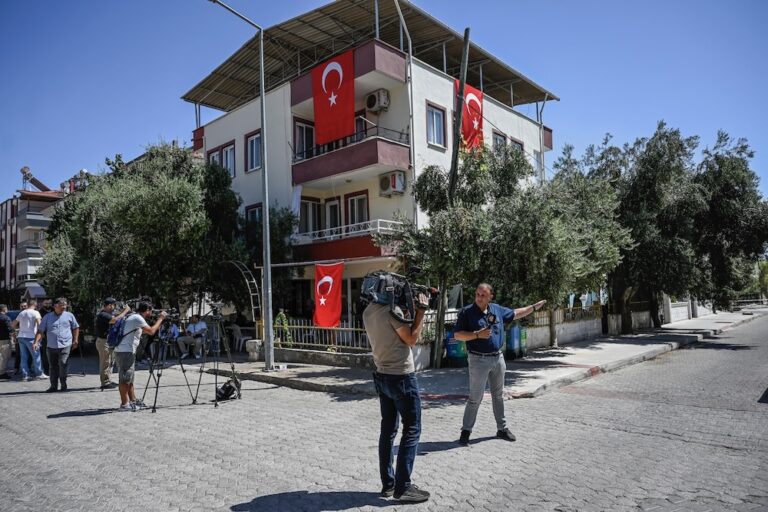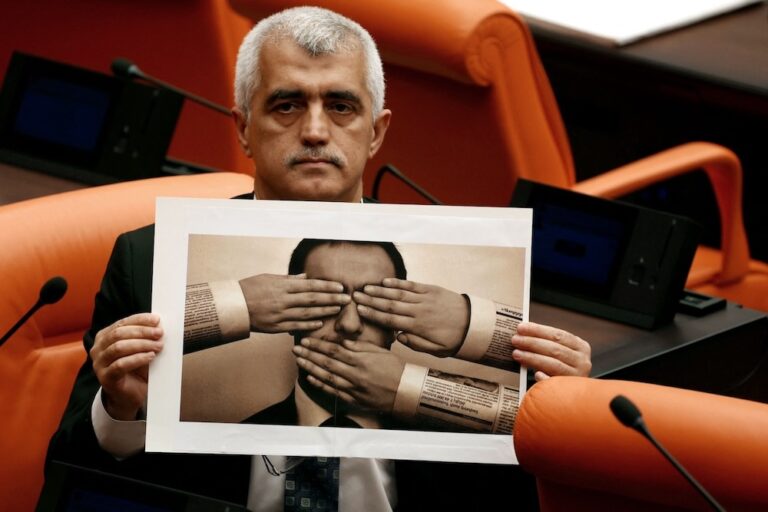The deportation decision against Jake Hess is based on an accusation that he "constitutes a threat to national security".
(BIANET/IFEX) – American journalist Jake Hess, who was arrested on 11 August 2010 and is being held at the Diyarbakir Police Directorate Foreigners Branch, is facing deportation from Turkey.
BIANET talked to Hess’s lawyer, Serkan Akbas, who said, “We are currently waiting for the procedures to finish. The Ministry of the Interior decided to expel (Hess) and will send him a flight ticket once the allowance has been granted to apply the decision.”
Akbas explained that Hess is going to be deported because he allegedly “constitutes a threat to national security”. The lawyer added, “It has been alleged that my client’s articles have put the Turkish state in a difficult position. Additionally, a KCK file was used as the legal basis for Hess’s deportation order. However, in the file it is claimed that Hess worked as an interpreter, so the accusation is unfounded. Furthermore, Hess has been banned from re-entering Turkey.”
KCK is the acronym for the Democratic Confederation of Kurdistan, an umbrella organisation that includes the separatist Kurdistan Workers Party (PKK). Both organisations are considered illegal by Turkey, the EU, the US, and a number other countries.
Akbas informed BIANET that a lawsuit will be initiated against the Ministry of the Interior at the Administrative Court on the grounds of the deportation decision against Hess. “Turkey created a privilege in terms of ‘public security’ both in domestic law and international agreements. Foreigners who are perceived as a threat to public order may be expelled from the country. Hence, we are not too optimistic about the case we are going to open against the ministry at the Administrative Court,” Akbas said.
Akbas indicated that they will apply to the European Court of Human Rights (ECHR) if they exhaust the possibilities for legal recourse within Turkey. He noted that “the ECHR previously convicted Turkey for having expelled US citizen Norma Jeanne Cox because she had distributed leaflets. This case constitutes a precedent for us. We have the base for achieving a satisfying result.”
Cox, who worked as a lecturer at Istanbul University and the Middle East Technical University in Ankara during the 1980s, was arrested in 1989 while distributing leaflets protesting against the film “The Last Temptation of Christ”. She was subsequently expelled from Turkey and banned from re-entering the country. In May 2010, the ECHR sentenced Turkey to a fine of €12,000 in compensation.
Akbas added that the decision about Hess’s deportation and the ban on re-entering the country has been sent to boarder posts by the Ministry of the Interior via the governor.


